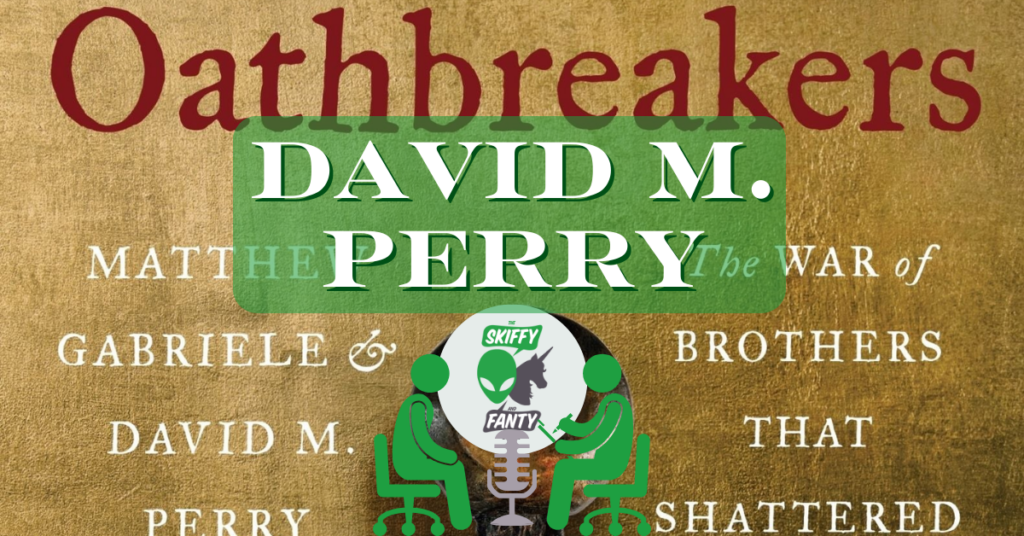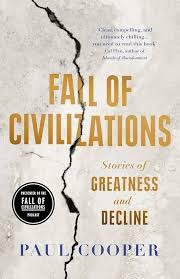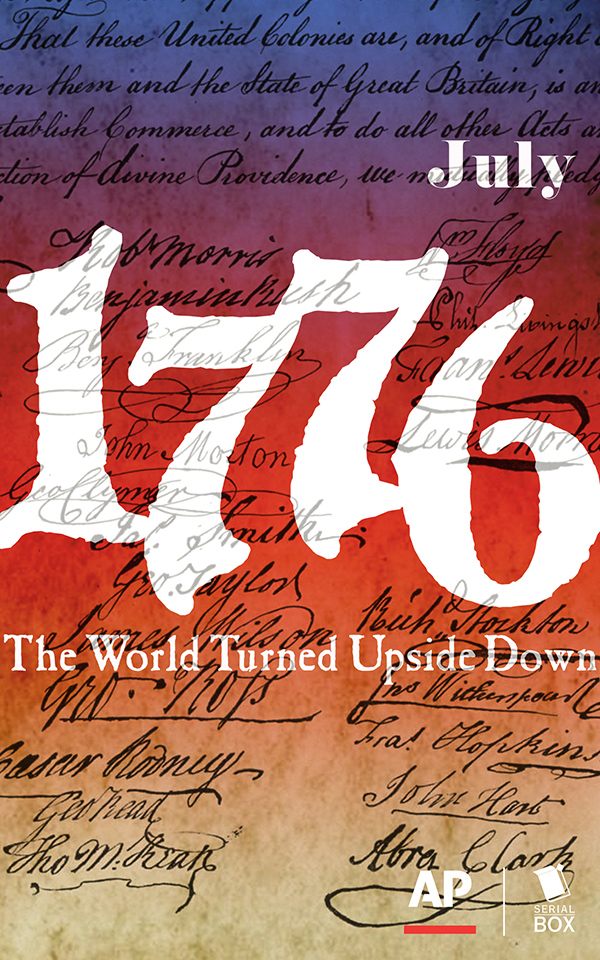Book Review: Inventing the Renaissance by Ada Palmer

I think Palmer’s Inventing the Renaissance justifies its size and then some.
And for the genre reader, this is a chonky, valuable book for showing that the past is a different country…and yet the people in it are awfully human. One can get a real appreciation for authors like Jo Graham and Guy Gavriel Kay by reading the full-on history that Palmer provides here…
808. David M. Perry (a.k.a. The Chronicler) — Oathbreakers

https://media.blubrry.com/skiffyandfanty/dts.podtrac.com/redirect.mp3/archive.org/download/sand-f-808-david-mperry/SandF_808_DavidMPerry.mp3Podcast: Play in new window | DownloadSubscribe: Apple Podcasts | Spotify | Android | Email | TuneIn | Deezer | RSSEmperors, wars, and medieval propaganda, oh my! Shaun Duke and Paul Weimer are joined by David M. Perry to discuss Oathbreakers (co-written with Matthew Gabriele). Together, they tackle the complex task of writing history for a general audience, the narratives of medieval peoples, Charlemagne, and so much more! Thanks for listening. We hope you enjoy the episode!
788. The Renaissance and Other Historical Oddities w/ Ada Palmer — SF at School!

https://media.blubrry.com/skiffyandfanty/dts.podtrac.com/redirect.mp3/archive.org/download/sand-f-788-renaissance-palmer/SandF_788_RenaissancePalmer.mp3Podcast: Play in new window | DownloadSubscribe: Apple Podcasts | Spotify | Android | Email | TuneIn | Deezer | RSSMythical dark ages, historical rhythms, and papyrus, oh my! Shaun Duke and Trish Matson join forces to talk to author and historian Ada Palmer about the Renaissance and other historical oddities! Together, they explore the myth of the Dark Ages, how ideology and perspective influence historical narratives, the Renaissance, and so much more. Come learn with us! Thanks for listening. We hope you enjoy the episode!
Book Review: Fall of Civilizations, by Paul Cooper

Paul Cooper’s Fall of Civilizations: Stories of Greatness and Decline takes the interests, enthusiasm and curiosity of the author and translates it from his popular podcast format into a book. There appears to be a small but distinct market of non-fiction books, where the author originally had a non-fiction podcast on a subject, and then switched over to writing non-fiction on that or similar or related topics. The apotheosis of this process are actual published books rather than just blog posts and essays. This trend is older than you probably think and started at the dawn of podcasting, with historian Lars Brownsworth going from a podcast on Byzantine Emperors to writing Lost to the West: The Forgotten Byzantine Empire That Rescued Western Civilization, among other non-fiction history books. Mike Duncan, podcaster of the History of Rome, and Revolutions, did a book on the start of the fall of the Roman Republic (The Storm Before the Storm) , and one on Lafayette (Hero of Two Worlds), who loomed large in his Revolutions podcast. Dan Carlin, a prolific and wide-ranging non fiction podcaster since the beginning of podcasting, wrote a book “The End Is Always Near: Apocalyptic Moments, from the Bronze Age Collapse to Nuclear Near Misses, which basically is an episode of his podcast, in book form. The audio version of the book, narrated by Carlin himself, blurs that line even further. And so we come to Paul Cooper’s Fall of Civilizations. In terms of total numbers of episodes, Cooper’s podcast oeuvre is much less than the aforementioned podcasts, his large subscriber base, however, made him a natural to land a book deal, however. His podcast, and perforce, the book, does what it says on the tin; it tackles a variety of civilizations, what made them tick, and why they collapsed. The book is divided into relatively digestible chapters (and I would say more digestible than the usually lengthy podcast episodes, which aside from some early ones generally run over three hours each), each tackling a different ancient to early modern civilization.The book ends with a “lessons learned” epilogue that ties into the theme of the book in general. What we get for civilizations that Cooper tackles are: The SumeriansThe Late Bronze Age CollapseAssyriaCarthageHan ChinaRoman BritainThe MayaThe KhmerByzantiumVijayanagaraSonghaiThe AztecsThe IncaEaster Island Cooper’s accomplishment is giving a base 101 course in the particular civilization, simplifying matters for a general reader, showing the civilization’s strengths, and then how and why things went downhill. It’s a familiar format to anyone who has listened to any episode of the podcast. It’s a wide ranging, although not absolutely comprehensive list of every civilization that has suffered a catastrophic collapse. There is some overlap with his podcast but there is much new material here as well. But I should say here that the book is not shallow, just like the podcast itself isn’t. While Cooper does boil things down for a typical reader, this book (as well as his podcast) is a classic case of the iceberg. This is made much more apparent in this book, thanks to the copious footnotes and an extensive bibliography. It should be emphasized on the other hand that this is not a grand academic work; this is definitely a book that seems designed to stir your curiosity, and not get too deep into the weeds and minutiae of any of the particular civilizations. That bibliography for each of the chapters is an excellent resource for a reader to pursue more knowledge and history about a particular civilization, and the bibliography does have very many technical works for specialists included. If you want to go very deep, Cooper first whets your appetite with his chapter, and then provides you the rabbit hole to plunge into. However, knowing too much about a civilization before reading the book had its hazards. This left me in a position where for some chapters, I was in rapt fascination because I knew relatively little of the details (Vijayanagara and Songhai in particular), but for others, I had to resist my “But, wait…” and bite my tongue when Cooper elided, skipped or overly summarized a detail I know very well. (this was particularly true for Roman Britain and Byzantium) So I return to the question of who this book is for. I provided the list of civilizations covered purposefully. If you have a strong knowledge of most of them, you are not going to find that much new here except for some fun details here and there, and that list of works to go deeper on if you want to take that plunge. However, if you are a fan of the podcast and Cooper’s style and presentation, that does map rather well to the book (and I suspect the audio edition of this book will have an even stronger correlation). And there is some lovely writing and imagery here, as previous listeners of the podcast might expect: “A ruin is a paradox. Each one shows us the fearsome power of time, while simultaneously standing in defiance of it.” And then there is the book’s theme that runs through each of the chapters, and is brought into stark relief in the aforementioned epilogue.. It’s not the happiest of themes, the recognition that every great civilization will perish or change into another form, and what will the legacy of our civilization be when it finally does? A number of the civilizations in this book fell due to or partially due to the stressors of climate change, which is a message that is extremely relevant and poignant in this day and age. The rapidity of how climate can change to a new and much less pleasant and congenial normal is a story that hits time and again in this book. Cooper makes it clear that we are facing a challenge in this day and age equal to the ones faced by the previous civilization. That may make this book a less “fun” read, but it makes it poignant, resonant and important.
Guest Post: Excerpt from Serial Box’s 1776

Today on Skiffy and Fanty, just in time for the 4th of July, Independence Day in the United States, we have an excerpt from 1776: The World Turned Upside Down, Serial Box’s serial on the Revolutionary War.
Around the Podosphere #16: Podcasts of Note for 10/21/17
It’s been a few weeks since the last edition, and as expected, there are more podcasts to talk about! So sit back, get your clicker finger ready, and enjoy some podcast goodness. Also: if you have any podcast recommendations, let us know in the comments! Here we go:

